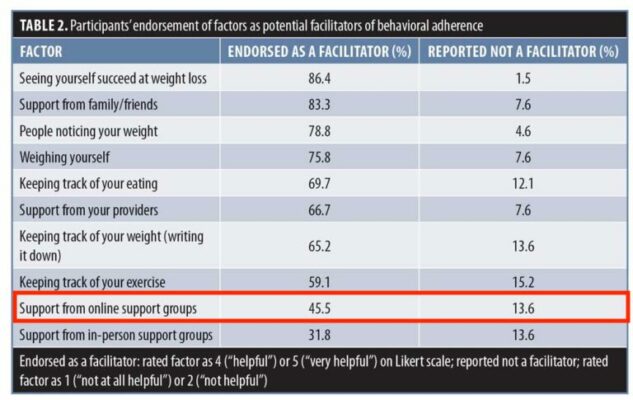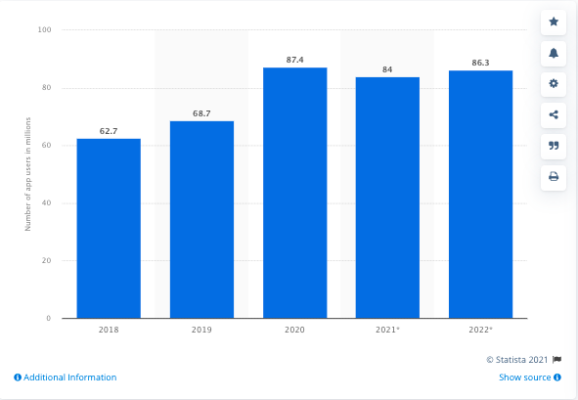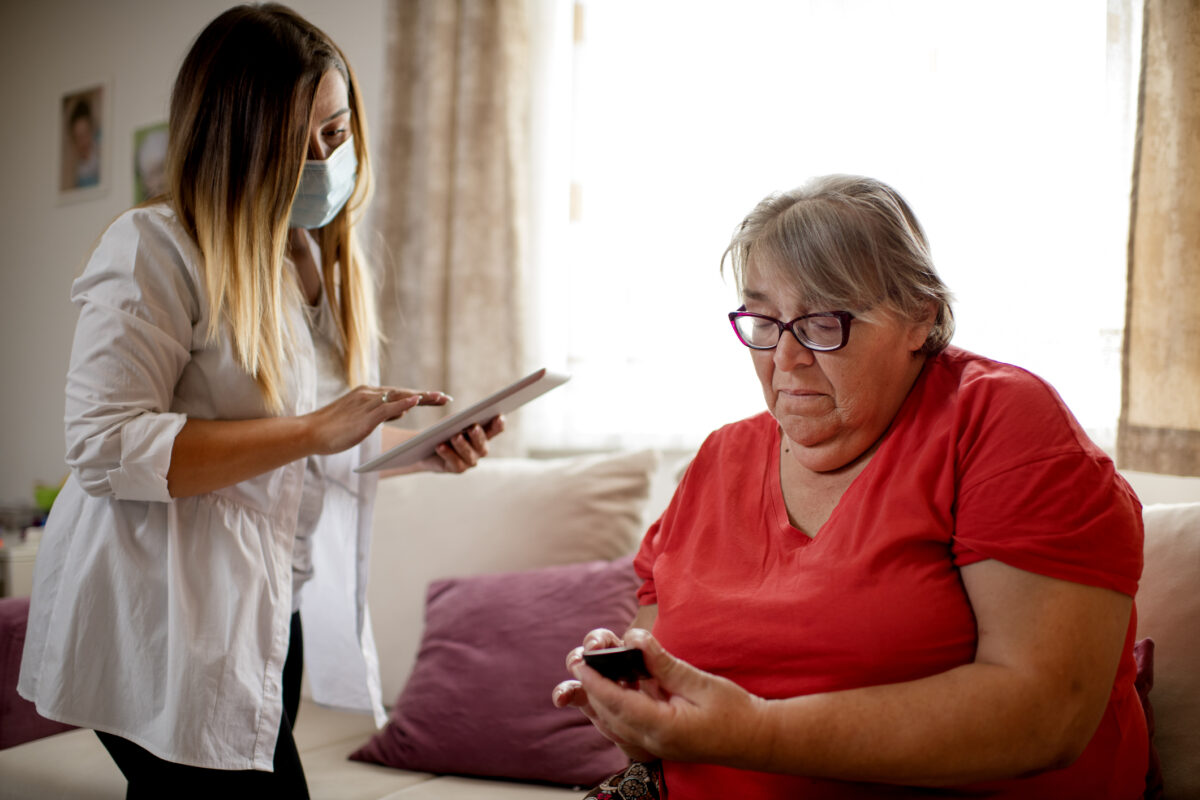Your patients do not tell you everything, which may hurt both treatment outcomes and your bottom line. This article explains how digital tools for bariatric patients help bridge the information gap, deliver better care, and boost your ROI.
Consider this: Despite overwhelming empirical support for the effectiveness of bariatric surgery, patients continue to underutilize it.
One reason for this – along with issues such as insufficient insurance coverage, lack of awareness, and anecdotal safety concerns – may be poor communication between patients and providers.
Communication between postoperative patients and their care teams has room for improvement as well:
- Bariatric patients in follow-up care report feeling “abandoned” and “isolated” from their healthcare providers.
- As much as 45-89% fail to attend postoperative appointments, which are critical to long-term weight-loss outcomes.
- A 2020 JMIR Perioperative Medicine study found that many postoperative bariatric patients prefer to seek information online than contacting providers directly and feel uncomfortable sharing health information in front of others.
All that not only undermines your ability to tailor treatments to your patients’ individual needs and collect high-quality data about their journeys, it also hinders your ability to do so consistently over time.
This is where digital tools for bariatric patients come in. Modern technologies harness the power of automation and big data to deliver powerful insights into the experiences and needs of patients.
Let us look at three tech solutions you should consider incorporating into your practice.
Key Takeaways
- Suboptimal communication and data collection strategies undermine providers’ ability to develop personalized treatment plans and grow surgical volume.
- Incorporating digital tools for bariatric patients into your workflow can help you gather high-quality data, achieve better outcomes, and scale your business without adding to your headcount.
- Examples include online forums and peer-support networks, wearable devices, tracking apps, and personalized care automation platforms.
3 Digital Tools for Bariatric Patients That Improve Communication and Data Collection
Is your communication and data collection strategy falling short? These digital tools can help:
1. Online Forums and Peer-Support Networks
According to the JMIR Perioperative Study above, online forums and other peer-support platforms have changed how bariatric patients engage with their care, both before and after surgery, in five fundamental ways:
- Managing expectations: Perioperative patients often display overly ambitious expectations of the procedure and irrational anxiety relating to potential complications. Both are usually due to poor communication with their care team. By encouraging patients to read about others’ post-surgery experiences, you can help them form more realistic expectations and improve patient preparedness.
- Improving decision-making: Online forums offer relatable, supportive, and first-hand peer advice on the types of surgery, suitability criteria, the impact of surgery on patient quality of life, and more. This gives patients a valuable real-life perspective and helps them weigh up the risks and benefits of bariatric surgery.
- Supporting information-seeking: Peer-support networks facilitate patient enablement by providing actionable tips for reducing stress, managing common postoperative symptoms, adapting to a new diet and lifestyle, and more.
- Facilitating connectedness: A growing body of evidence suggests a strong correlation between social support and increased patient empowerment, successful long-term weight maintenance, and better quality of life.

- Enabling connectivity with healthcare professionals: Patients are more comfortable asking sensitive questions online than in face-to-face meetings, which is why you may want to consider participating in online communities in a professional capacity. Forums can also provide you with insight into the daily experiences of bariatric patients that may not be otherwise available.
2. Wearable Devices and Tracking Apps
The numbers speak for themselves.
Around 30% of U.S. adults use wearable healthcare devices. Of these, nearly half – 47.33% – wear them every day, and 82.38% are willing to share health data with care providers.
In 2021, an impressive 85 million smartphone owners nationwide used at least one fitness or health or app per month.

As patients become increasingly tech-savvy, consider incorporating wearables, connected devices, and health tracking apps into your workflows. Examples include:
- Smartwatches
- Wearable fitness trackers
- Nutrition and water-intake tracking apps
- Weight loss tracking apps
- Electronic scales
- Brachial cuffs
- Remote patient monitoring devices
- Heart rate, respiratory rate, and blood pressure monitoring devices
A 2020 study on the effectiveness of continuous digital assessment of postoperative bariatric patients found that activity trackers capture valuable physiological and behavioral data unavailable during episodic in-person follow-ups.
This suggests that our current understanding of postoperative behavior and physiology may not reflect patients’ lived experiences. The good news is that wearable devices may help bridge the knowledge gap. Furthermore, clinicians and researchers could use these insights to adjust the markers of success for weight loss surgery and develop day-by-day recovery profiles.
3. Personalized Care Automation Platforms
Care automation platforms like Wellbe’s ConnectedCare™ are highly effective tools for bariatric journey improvement. They provide patients with an automated guided workflow that simplifies and streamlines the hundreds of steps they need to take pre-and post-surgery. This way, you can ensure that patients have the right information at the right time, in manageable portions.
Furthermore, thanks to these platforms’ automated data collection capabilities, you can:
- Capture the data you need to develop tailor-made care plans and improve surgical outcomes
- Reduce unnecessary communications and automate data entry tasks, freeing up time and resources to focus on improving care and growing your business
- Receive valuable patient feedback
The results are more than encouraging. Bariatric practices who use ConnectedCare™ report an average of:
- 30% surgical growth rate in the first year
- Over 84% patient completion rate of assessment and outcome forms
- Over 98% of patients say they feel prepared for surgery
- 1,600 staff hours saved in assessment and outcome paperwork
Ready to Give Digital Tools for Bariatric Patients a Try?
Wellbe’s personalized care automation platform is a cost-effective and easy-to-use solution that can help you radically improve patient communication, gather high-quality clinical data, achieve better surgical outcomes, and grow your business without hiring new staff.
Its guided workflow, user-friendly interface, and simple language eliminate confusion and empower bariatric patients to actively partner with you throughout their care journey.
Boost your growth with Wellbe.


 The epitome of an entrepreneur, Mark has seen the peaks and valleys of starting, operating, and assuming the risks of a new venture. He’s come up against payroll, had a few bad hires, and even swept the floors early on. Collectively, Mark’s companies have done over $360 million in sales and raised more than $38 million in venture capital, and he has successfully bought and/or sold eight companies.
The epitome of an entrepreneur, Mark has seen the peaks and valleys of starting, operating, and assuming the risks of a new venture. He’s come up against payroll, had a few bad hires, and even swept the floors early on. Collectively, Mark’s companies have done over $360 million in sales and raised more than $38 million in venture capital, and he has successfully bought and/or sold eight companies. James believes technology, when creatively applied, can improve our life experiences. Intrigued by the amazing potential for internet and mobile technology to engage us all, James created a business model to reshape personal health management.
James believes technology, when creatively applied, can improve our life experiences. Intrigued by the amazing potential for internet and mobile technology to engage us all, James created a business model to reshape personal health management. Mike Splinter, an electrical engineer and innovator, has played a major role in driving advances in the high tech industry, with more than four decades of executive leadership experience including 12 years with Applied Materials, Inc. where he was served as chairman and CEO, and over 20 years with Intel, where he was executive vice president of sales and marketing, and executive vice president of the Technology and Manufacturing Group.
Mike Splinter, an electrical engineer and innovator, has played a major role in driving advances in the high tech industry, with more than four decades of executive leadership experience including 12 years with Applied Materials, Inc. where he was served as chairman and CEO, and over 20 years with Intel, where he was executive vice president of sales and marketing, and executive vice president of the Technology and Manufacturing Group. Mr. Baldwin was most recently Chairman and CEO of Baxa Corporation, a leader in devices, systems, and software for the handling, packaging, and tracking of fluid medications in a critical care setting. Under his leadership from 1997 until its sale to Baxter Corporation in 2011, the company sales grew from $25 million to over $170 million. As CEO, he led the eight-member board of directors and led a minority recap resulting in Goldman Sach’s private equity group owning 27% of the company. He was also an early investor and lead director in Pharmacy OneSource, an innovative software-as-a-service business that had a successful exit in 2010.
Mr. Baldwin was most recently Chairman and CEO of Baxa Corporation, a leader in devices, systems, and software for the handling, packaging, and tracking of fluid medications in a critical care setting. Under his leadership from 1997 until its sale to Baxter Corporation in 2011, the company sales grew from $25 million to over $170 million. As CEO, he led the eight-member board of directors and led a minority recap resulting in Goldman Sach’s private equity group owning 27% of the company. He was also an early investor and lead director in Pharmacy OneSource, an innovative software-as-a-service business that had a successful exit in 2010.